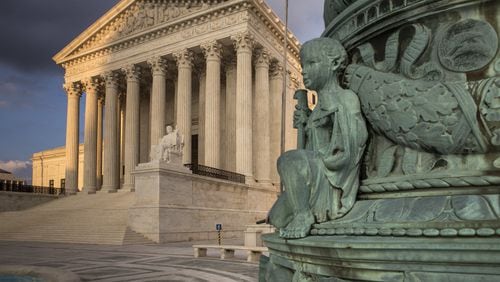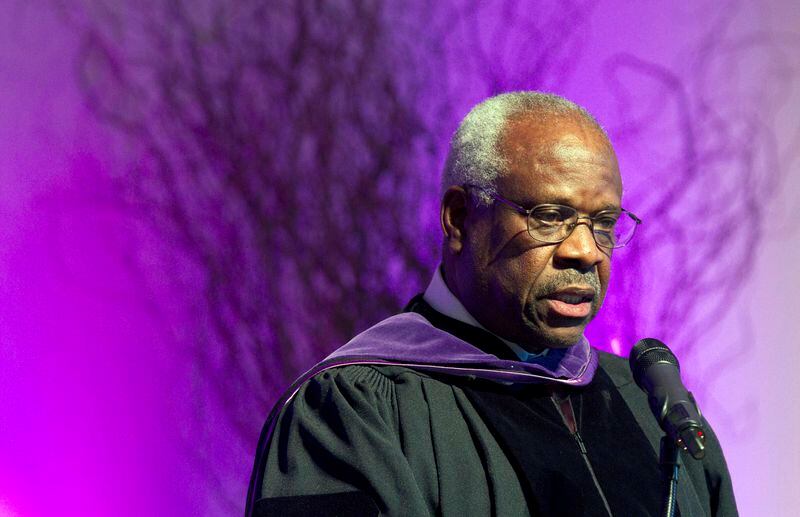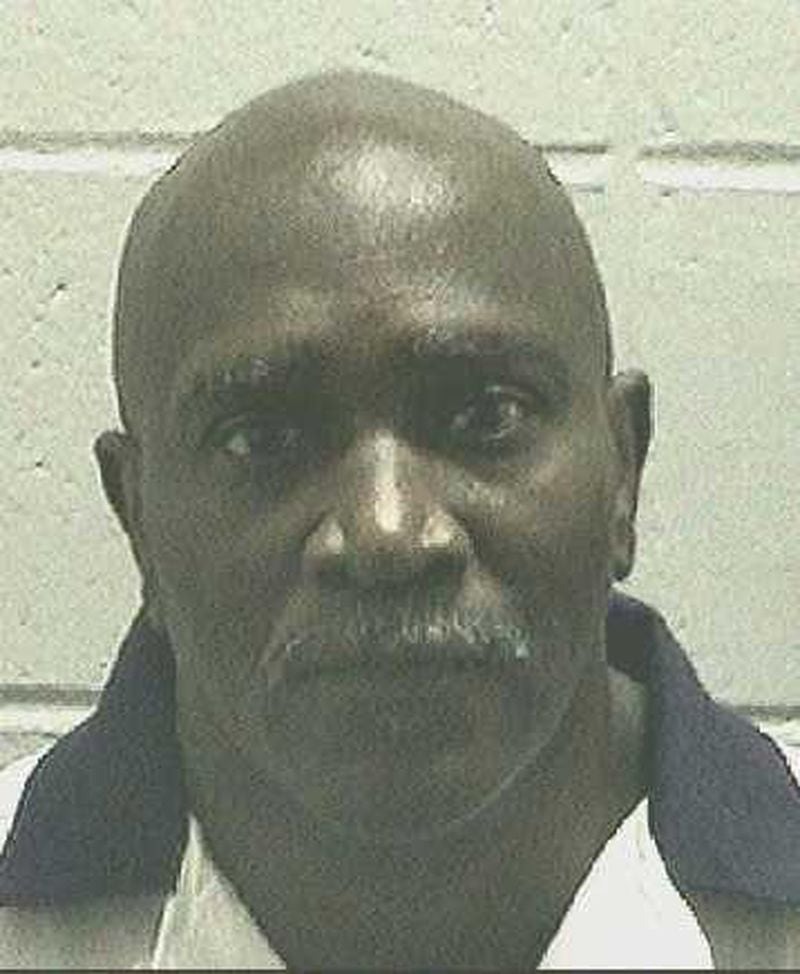The U.S. Supreme Court on Monday granted a reprieve from execution to a Georgia death-row inmate, expressing concerns that a juror's racist beliefs unfairly prejudiced the case.
In a 6-3 decision, the high court sent Keith Tharpe’s case back to the federal appeals court in Atlanta with instructions to take a closer look to see whether the juror voted to give Tharpe the death sentence because the defendant was black. Such a finding by the appeals court likely would give Tharpe, who sits on death row for killing his sister-in-law in 1990, a new sentencing hearing.
The extraordinary case centers on an affidavit signed by juror Barney Gattie seven years after Tharpe’s 1991 trial. In that statement, Gattie, now deceased, used racial slurs and said, “I have wondered if black people even have souls.”
“Gattie’s remarkable affidavit — which he never retracted — presents a strong factual basis for the argument that Tharpe’s race affected Gattie’s vote for a death verdict,” the court said in an unsigned opinion.
The majority acknowledged that Tharpe faces a “high bar” to have his claims considered in federal court and “it may be that, at the end of the day” his appeal fail. But the 11th U.S. Circuit Court of Appeals, which declined even to hear Tharpe’s appeal, needs to give it closer scrutiny, the Supreme Court said.
Justice Clarence Thomas, joined by Justices Samuel Alito and Neil Gorsuch, issued a strong dissent. He accused the majority of “ceremonial handwringing” and said sending the case back to the lower courts is a “useless do-over” that “callously delays justice.”
Brian Kammer, one of Tharpe’s lawyers, said he was heartened by the decision. “We are thankful that the U.S. Supreme Court has recognized the serious implications for fundamental fairness involving the racial animus on the part of the juror in this case and the fact it needs to receive more attention,” he said.
The Supreme Court halted Tharpe's execution on Sept. 26, after Tharpe had eaten what was to be his last meal and more than three hours after the scheduled time of his execution.
Tharpe was sentenced to death for crimes he committed after his wife moved out to escape their violent marriage.
On Sept. 25, 1990, Tharpe drove a pickup truck to intercept his estranged wife and her sister in law, Jaquelin Freeman, as they set out for their jobs in Macon. Tharpe blocked their car, dragged Freeman out and shot her three times with a shotgun.
Tharpe then kidnapped his wife and allegedly sexually assaulted her. A Jones County jury convicted Tharpe and sentenced him to die for Freeman’s murder during a trial held just three months after the crimes.
Seven years later, Tharpe's defense team interviewed juror Barney Gattie.
In a sworn affidavit, Gattie said, “There are two types of black people: 1. Black folks and 2. (Racial slurs),” and Tharpe “wasn’t in the ‘good’ black folks category.”
Freeman, the murder victim, came from a family of “nice black folks,” Gattie said. “If they had been the type Tharpe is, then picking between life and death for Tharpe wouldn’t have mattered so much. My feeling is, what would be the difference?”
Tharpe’s lawyers subsequently litigated the racial bias issue in state court, but a judge ruled against them.
“Gattie’s remarkable affidavit … presents a strong factual basis for the argument that Tharpe’s race affected Gattie’s vote for a death verdict,” the Supreme Court said Monday. “At the very least, jurists of reason could debate whether Tharpe has shown by clear and convincing evidence that the state court’s determination was wrong.”
In dissent, Thomas said the lower courts had properly considered and disposed of Tharpe’s claims. The justice noted that Gattie, in a second affidavit obtained by state attorneys, recanted his first one and said he didn’t vote for the death penalty because Tharpe was black.
Gattie also maintained he’d been drinking when he signed his first affidavit, Thomas said. (Thomas neglected to note that a defense lawyer and investigator who obtained Gattey’s first affidavit have said in their own affidavits that Gattie did not appear to be inebriated.)
The majority’s decision “merely delays Tharpe’s inevitable execution,” Thomas said. “The court must be disturbed by the racist rhetoric in that affidavit and must want to do something about it. But the court’s decision is no profile in courage.”
Stephen Bright, a law professor at Yale and Georgia State law schools, said the decision shows how the high court is increasingly requiring lower courts to carefully examine racial bias issues. “The attention to racial discrimination is long overdue because it has long been a factor in many criminal cases and particularly in death penalty cases,” he said.
About the Author









